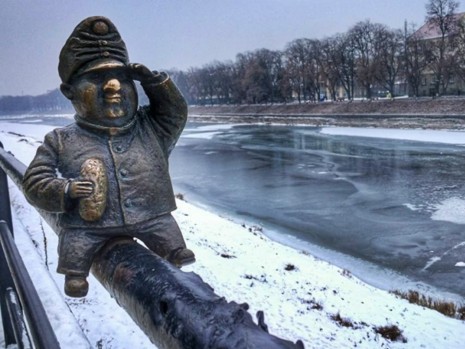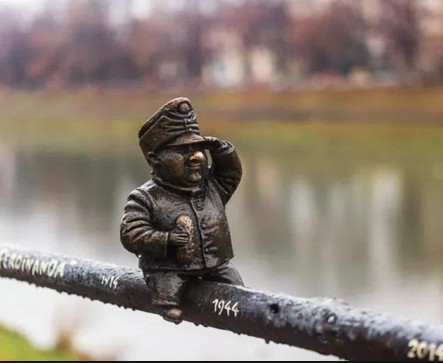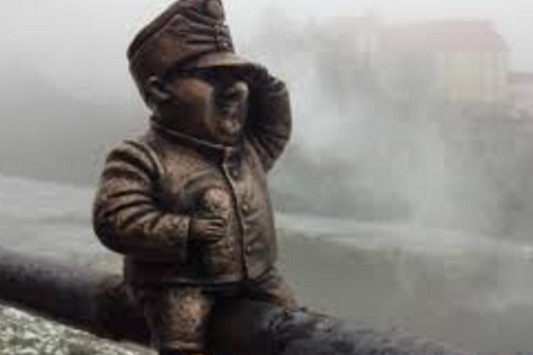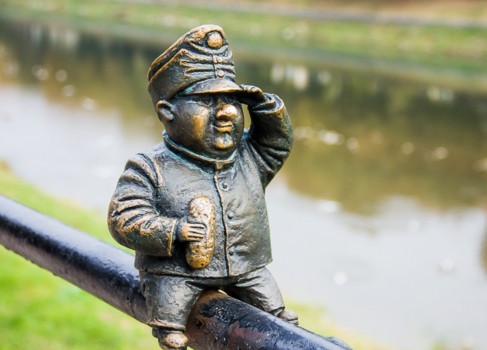
Schweik is a world-famous character whose Creator is a Czech writer Jaroslav Hasek. His work ” adventures of the brave voyaka shveyka” and still remains one of the most popular anti-war novels written after the First world war. This is the story of a simple soldier Schweik, in in which the protest against violence and war sounds in major notes.
The sculpture was installed on July 10, 2012 in honor of the anniversary Ukrainian-Czech friendship, as well as a monument to the post-war city (not by accident it was mounted on historical pieces of railing, which even left traces of bullets from the Second world war).
Official opening of the mini-sculpture of Schweik in the city Uzhgorod it was done by Yaroslav Hasek’s grandson, Richard.
The author of this little masterpiece is Mikhail Kolodko. The owner of the tavern-Museum financed the creation of a mini-sculpture of Schweik “DECA at the librarian” DECA at the librarian
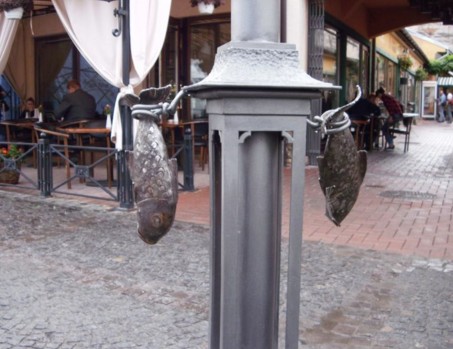
If you look closely at the mini-sculpture, you will notice that in his hand Schweik holds dumpling. There is a certain symbolism in this. First, dumplings are a traditional Czech dish with doughs, to which a whole page of Hasek’s novel is devoted. Secondly, in the slang of the Czech military times of the First world war, “dumpling” means “fool”, “stupid”, “blockhead”.
Mini-sculpture “Brave soldier Schweik” located on the Kievskaya embankment, near the pedestrian bridge (GPS: 48.621410, 22.297453).
It is known that the same sculptures-brothers of Schweik are also in Odessa, Budapest, Prague, Skopje and many other European cities.
In his book “Uzhgorod – the world capital of mini-sculptures” Nadezhda Popadyuk lays out an interesting legend associated with this mini-sculpture. According to this legend, the first stop of the famous soldier Schweik was the city of Uzhgorod. One evening, a quiet, modestly dressed man entered a local tavern on the beach the Uzh river. Hello, I’m Josef Schweik, ” the man introduced himself, although there was no one in the tavern but the innkeeper. In those days on the territory of Transcarpathia moonshine “slivyanka” was an indicator of the level of prosperity of the family and was given to guests, it was cooked exclusively on spring water, so it was transparent as a tear. The innkeeper greeted the guest and, according to custom, poured him a full glass of slivyanka, which Schweik drank to the bottom in one breath and began to tell about himself. He told about his hometown of Prague, how he traveled around the country, participated in military maneuvers and even how he was under a military Tribunal in Tereziny, talked so much that they did not notice how it was already beginning to get light on the street. Finally, Schweik told his tradition: in new cities and countries where he visits, he usually leaves bronze mini-sculptures with his image as a symbolл freedoms a person needs to be moved, despite bureaucracy, obstacles, and wars. He took a bundle of white cloth from under his shirt and gave it to korchmarevi, who promised him to place a mini-sculpture of Schweik in Uzhgorod after the end of hostilities and the establishment of peace. Receiving a gift of a large bottle of plum brandy called slivovica, a brave soldier left the city and went in search of new adventures. The innkeeper fulfilled his promise, and after the end of the war, a mini-sculpture of Schweik settled on the railing of the Uzh river embankment, opposite the tavern, which is famous for the most delicious sliv’yankoyu in the city.
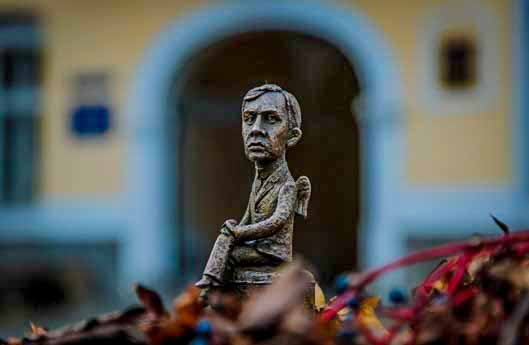
Mini-sculpture of Schweik Міні-скульптура Швейка взимку Mini sculpture of Schweik in the rain Mini-sculpture of Schweik in the fog



